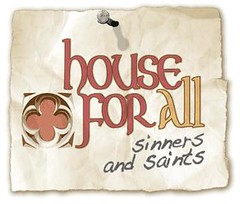During the month of October we will be discussing various aspects of
Will and
Lisa Samson's book
Justice in the Burbs. This book is a good introduction to what it means to care about justice as a Christian - especially if "justice" is something which you have avoided or known nothing about before. The book is also accessible to people with differing learning styles as each chapter presents ideas in fictional form, expository prose, and devotional meditation. Getting those various facets of justice really helps one in understanding the big picture. This is an introductory type of book, that focuses mainly on general themes and less on specific action steps, but it helps create the setting for how we can view justice. Even you haven't read the book please still feel free to jump in on these conversations (but it's a quick read if you want to pick it up!).
The story part of
Justice in the Burbs follows a "typical" evangelical suburban family that over times learns to care for the needy and attempts to live justly. It is a process of learning and caring and understanding that is often met with scorn and rejection. The idea is to help discover how one can live a just life even in the suburbs (which the authors admit they failed at doing). To start our discussions, I think a general introduction to the idea of justice might help us most. So please share your experiences and stories.
1. When you hear the term "justice" what do you think of? What is your reaction to the term "social justice"?
2. In your church tradition were (are) things like helping the poor and the oppressed priorities? Do you spend more time involved in church activities that are for the good of the church (programs, leadership meeting, choir...) or in those that are intended to serve the needy?
3. In your day to day life, do you encounter situations where you must make ethical or "just" decisions? Do you encounter people who are in need of help (in whatever form)?
4. Do you think that Christians should even be involved in bringing "justice" to the world? Why or why not?
Labels: Book Discussions, Justice in the Burbs










